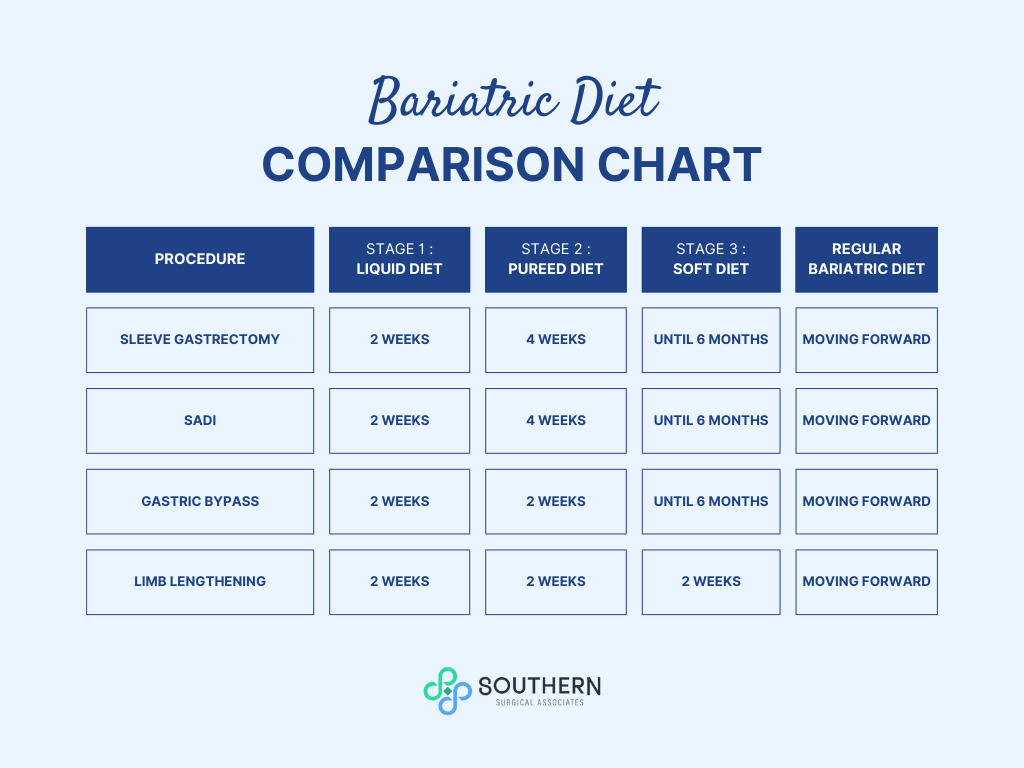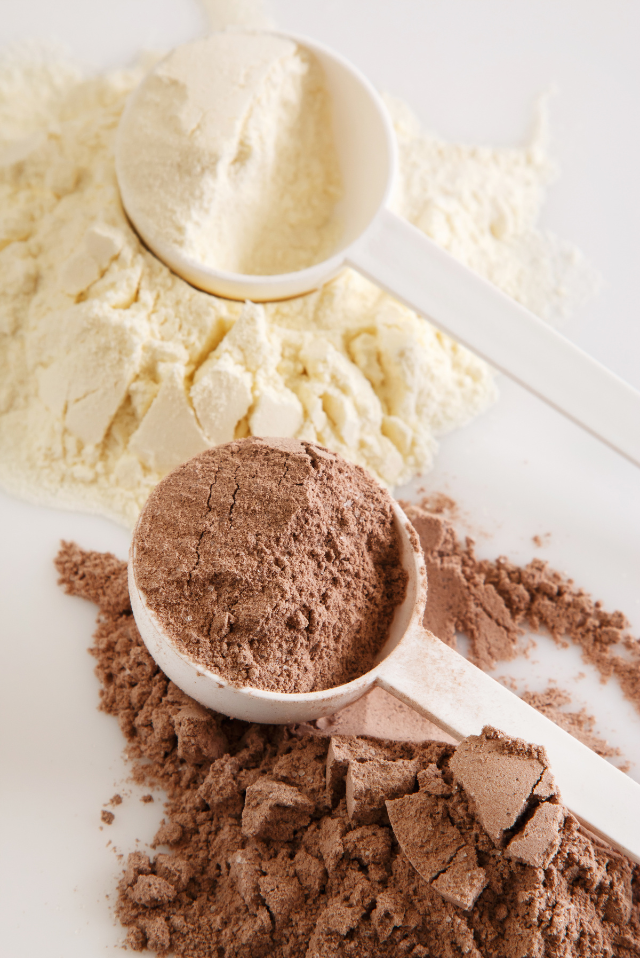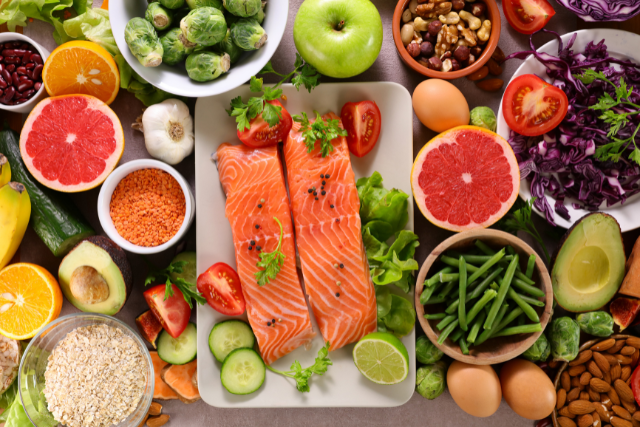Embarking on a journey through bariatric surgery is a life-changing decision, one that comes with its own set of rules, especially when it comes to your diet. Post-surgery, your stomach’s capacity is significantly reduced, which means you’ll need to adjust not just what you eat but also how you eat. This guide will navigate you through the dietary phases post-surgery, ensuring a smooth transition and successful weight loss.
Adjusting your diet post-bariatric surgery isn’t just about weight loss—it’s about adopting a healthier lifestyle. The right diet ensures you get the nutrients you need while adhering to your new stomach’s limits. Let’s dive into how you can manage this transition effectively.
Diet Progression Overview
After surgery, you will progress through a carefully structured dietary plan, designed to support both your immediate recovery and your ongoing health. This journey through different dietary stages is essential for ensuring your body receives the necessary nutrients while adapting to the changes brought about by the surgery.

Your Diet According to Your Bariatric Procedure
The type of bariatric procedure you undergo will determine the path you follow post-surgery. Each comes with its tailored diet schedule to ensure optimal healing and weight loss success. Understanding the diet schedule specific to your procedure is key to navigating the post-operative period successfully. Each step is designed to optimize healing, nutritional intake, and ultimately, your weight loss journey. By adhering to these guidelines, you're laying the foundation for a healthier, more active future.
Post Op
Although not officially labeled as a stage, the first couple days post-op are crucial for your recovery, often known as the Clear Liquid Stage. During this time, hydration takes precedence. Given your stomach's new capacity, it's important to take small, slow sips to adjust. Protein intake is less critical in these initial days compared to what is necessary in the days to follow. Staying hydrated is key, as dehydration is a common cause of readmission after bariatric surgery.1
Stage I: Liquid Diet
For the first two weeks post-surgery, you will consume only liquids. It is designed to let your stomach heal. You must consume 60-80 grams of protein daily in this phase through six liquid meals, with no solid foods allowed. Your meals should be spaced out. Your meal times could look like the following example schedule —8 am, 10 am, 12 pm, 2 pm, 5 pm, and 7 pm—each consisting of 2 liquid ounces. To meet your protein needs, incorporate protein powders or liquid protein into your diet, as determined by your dietitian. While ready-made protein shakes and waters are available, they alone won't suffice for your daily requirement. Thus, making your own protein shake every day is essential. You can find the necessary supplements at our in office health food store or other various health food stores, ensuring you stay on track with your post-surgery nutrition plan.


Stage II: Pureed Diet
After mastering the liquid diet, you'll transition to the pureed food stage, which typically spans 2-4 weeks. During this phase, you blend foods to a smooth, baby food-like consistency, marking an important step towards reintroducing your stomach to more solid foods. Protein remains a top priority, with a goal of consuming 60-80 grams daily. To achieve this, incorporate unflavored protein powders or liquids into every meal to make your food smooth, soft, and easy to digest. Adhere to a structured schedule of six protein-rich meals a day, with each portion ranging from 2-4 ounces. Blend a variety of fruits, vegetables, and thoroughly cooked meats to the required consistency, emphasizing that no chewing should be necessary. You can enhance flavors with spices, and for added convenience, you can refrigerate or freeze your meals. This stage is vital for both continuing your recovery and fulfilling your nutritional needs efficiently.
Stage III: Soft Diet
The soft diet phase is focused on incorporating tender, moist, and easy-to-chew foods such as soft vegetables, fruits, and lean meats, easing the transition to more solid foods. Aim for 60-80 grams of protein daily, now incorporating more natural sources like tender meats, along with soft fruits and vegetables. This stage is crucial for smoothly transitioning to a more varied diet without straining your digestive system. Focus on foods that are simple to chew and moist, ensuring you get the nutrition you need while your body continues to heal. Remember, this step is about gradually reintroducing your stomach to solid foods in a comfortable and manageable way.
Transition to Regular Diet
Gradually, you'll start incorporating a broader range of foods into your diet. However, the key here is moderation and balance. Continue prioritizing protein and hydration but start exploring different foods and textures, always mindful of your stomach's new capacity.
Hydration
Staying hydrated is key after bariatric surgery. Aim for 48-60 ounces of fluid daily, but don't drink during meals. Wait 10-30 minutes after eating to sip again. Choose drinks with under 5 grams of carbs per 8 ounces, avoiding caffeine and carbonation. Watch for pale, straw-colored urine to gauge hydration. Stick to water, flavored water, and low-carb options like Propel Water or Diet Snapple. Use sweeteners like Splenda or Stevia instead of sugar. Also, clear broths and sugar-free options like Popsicles can help. Remember, avoid carbonated drinks forever and stick to decaf for the first two months post-op.
Protein Intake
Protein aids in healing and muscle maintenance, making it essential post-surgery. Strive for 60-80 grams of protein daily, utilizing supplements where necessary to reach your goals, especially in the early stages when solid food intake is limited.
Vitamin and Mineral Supplements
Post-bariatric surgery, your body's ability to absorb certain nutrients is diminished. Adhere to the recommended vitamin and mineral supplements to prevent deficiencies. This includes a multivitamin, calcium citrate with vitamin D3, vitamin B12, and iron, following the ASMBS guidelines.
Starting two weeks post-op, you should have all your supplements in chewable, crushable, or liquid form for easy digestion. Limb Lengthening patients can switch back to pills or capsules once they're home. Make sure not to take calcium and iron at the same time—they don't mix well. Spread out your vitamin intake across the day. The monthly cost for these essential vitamins will be around $30-50, depending on the brand. Always choose a bariatric multivitamin that's approved by Southern Surgical to ensure you're getting the right nutrition. Remember, these supplements you must take for life to keep in top health post-surgery.
Meal Preparation and Choices
Meal prep becomes more important than ever post-surgery. For the pureed and soft diet stages, focus on nutrient-rich foods that can be easily blended or are naturally soft. Experiment with spices to add flavor without unnecessary calories or fats.
Mindful Eating Practices
Eating slowly and mindfully can help prevent overeating and discomfort. Pay attention to your body's hunger and fullness cues, and make each meal an opportunity to nourish your body thoughtfully.
Conclusion
As you conclude your reading on the bariatric diet after surgery, remember that your journey is marked by gradual, important changes. You've learned that you will evolve your diet stages, each tailored to accommodate your healing body and pave the way for a regular diet. The importance of hydration can't be overstressed, with a focus on protein intake and essential vitamins and minerals to prevent deficiencies and promote recovery. Your supplements should be easy to digest, and mindful eating practices will be your companion throughout this journey. Remember to be patient and kind to yourself as you navigate each stage, knowing that Southern Surgical is here to support you. Each step you take, every meal you prepare, is an investment in your health. Keep your goals in sight, and embrace each day with the knowledge that you are on the path to a healthier, happier you.
Citation
1 Ivanics, T., Nasser, H., Leonard-Murali, S., & Genaw, J. (2019). Dehydration risk factors and impact after bariatric surgery: an analysis using a national database. Surgery for Obesity and Related Diseases, 15(12), 2066-2074. https://doi.org/10.1016/j.soard.2019.09.054
Take the First Step Today!
Take the First Step Today
Ready to transform your life? Contact us to begin your journey. Our team is eager to guide you towards achieving your health and happiness goals. With our commitment to your success and a supportive community, you're not just taking a step towards weight loss; you're stepping into a new, healthier chapter of your life.




